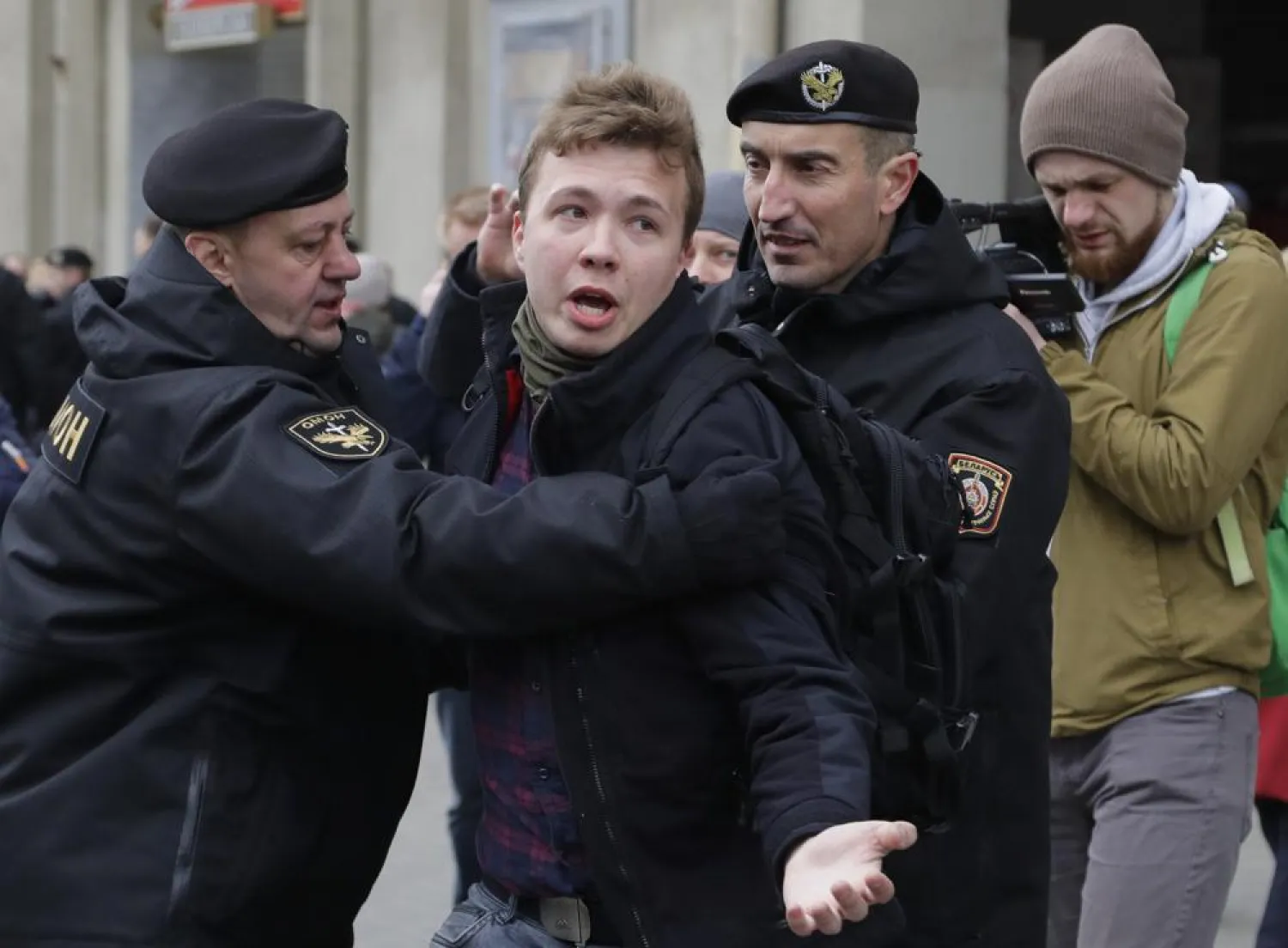Several airlines said on Monday they would avoid Belarusian airspace after Belarus scrambled a warplane to intercept a Ryanair jetliner and arrest a dissident journalist in an act denounced by Western powers as "state piracy".
The European Union was considering responding to Sunday's incident by limiting international air traffic over Belarus and restricting its ground transport, and could tighten sanctions already in place on the former Soviet republic.
"The reaction should be swift and be severe," Belgian Prime Minister Alexander de Croo told journalists ahead of talks among all 27 national EU leaders from 1700 GMT.
Irish Foreign Minister Simon Coveney, using language that was echoed by a number of other EU countries, said: "This was effectively aviation piracy, state sponsored."
The three Baltic states said Belarusian airspace should be declared "unsafe" and that the EU should close its airspace to Belarusian flights.
As regional tensions rose, Belarus and Latvia said they were expelling each other's ambassadors.
Some airlines and countries did not wait for guidance on how to respond to the flight from Greece to Lithuania being diverted as it flew through Belarusian air space.
Britain said it was issuing a notice to instruct British airlines to cease flights over Belarus and that it would suspend the air permit for Belarus's national carrier Belavia with immediate effect.
Latvian airline airBaltic and Scandinavian airline SAS said they would stop using Belarusian air space, and Cyprus-registered Avia Solutions said its Lithuania-based airlines would follow suit.
Lithuania's transport minister, Marius Skuodis, said Poland's LOT and Hungarian airline Wizzair would also not use Belarusian air space and said all flights to and from Lithuanian airports must from midnight GMT avoid Belarusian air space.
Crackdown on dissent
Countries also called for the release of 26-year-old Roman Protasevich, who was detained when the plane was forced to land in Minsk, the Belarusian capital.
His social media feed from exile has been one of the last remaining independent outlets for news about Belarus since a mass crackdown on dissent last year. Sophia Sapega, a 23-year-old student travelling with him, was also detained.
NEXTA, a news service where Protasevich worked before setting up his own widely followed blog, ran an interview with his mother, who said that as soon as she had heard reports of a bomb scare on a flight, she knew it was a plot to capture him.
"I just want to say that my son is simply a hero, simply a hero," Natalia Protasevich said, weeping. "I truly hope that the international community will wake up for him."
Belarus says it acted in response to a bomb threat on the flight, which turned out to be a false alarm. It said on Monday its ground controllers had given guidance to the flight but had not ordered it to land. State media said the intervention was ordered personally by President Alexander Lukashenko.
Ryanair boss Michael O'Leary, who referred to the incident as a state-sponsored hijacking, said he believed security agents had been on the flight.
Lithuanian authorities said five passengers never arrived, suggesting three others besides detainees Protasevich and Sapega had disembarked in Minsk.
Russia, which has provided security, diplomatic and financial backing to Lukashenko, accused the West of hypocrisy.
Given the security ties between Minsk and Moscow, some European politicians openly speculated whether Russia may have played a role, which would escalate an incident involving a small European pariah state into one involving a superpower.
Sanctions options
EU summit chairman Charles Michel said the incident was "an international scandal" and hoped the 27 member states would agree on sanctions, which require unanimity.
EU countries could ban Belavia from European airports and was considering other unspecified measures regarding ground transport links, an EU official said.
Still, the options for Western retaliation appear limited. The Montreal-based International Civil Aviation Organization (ICAO) has no regulatory power, and the EU has no authority over flights taking off and landing in Belarus or flying over its air space, apart from direct flights that originate or land in Europe.
The EU and the United States imposed several rounds of financial sanctions against Minsk last year, which had no effect on the behavior of Lukashenko, who withstood mass demonstrations against his rule after a disputed election.
Lukashenko denies election fraud. Since the disputed vote, authorities rounded up thousands of his opponents, with all major opposition figures now in jail or exile.
Belarus lies on the flight path of routes within Europe and between Europe and Asia. ICAO, a UN body, said it was "strongly concerned" by the incident, which it said may have contravened the core treaty that governs global aviation, the Chicago Convention, in force since 1944.
Skirting Belarus would slow flights down and cost airlines money, and apart from the few that announced action it was not clear whether others would do so unless required.









